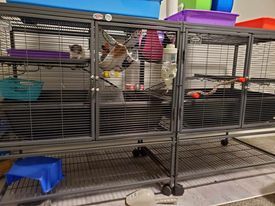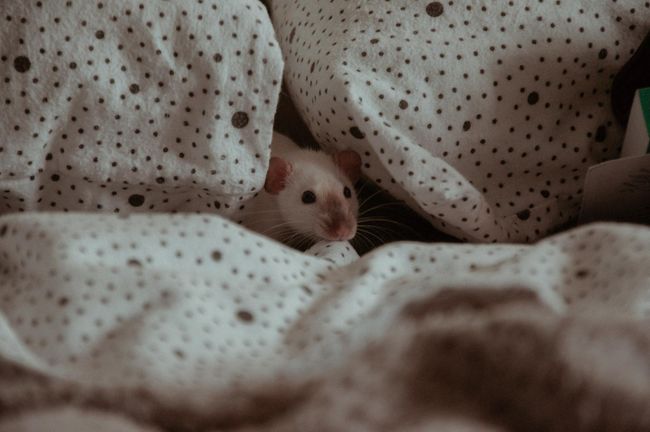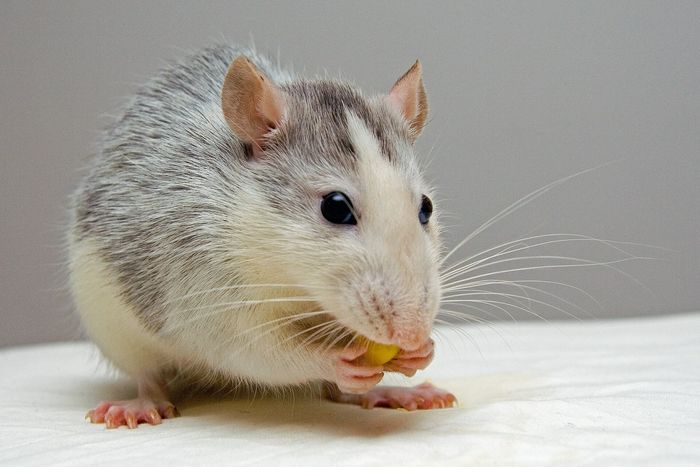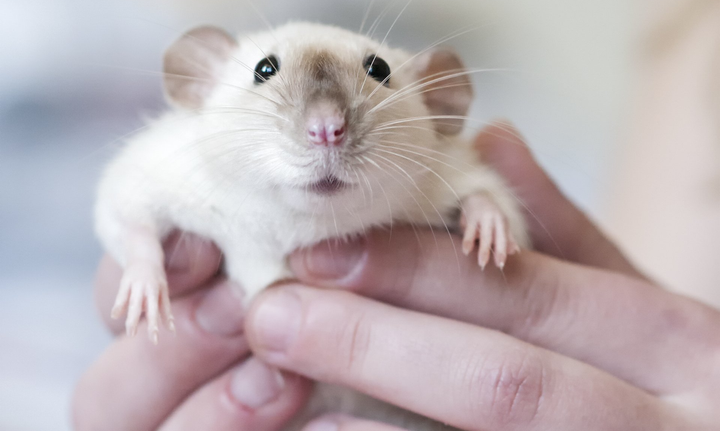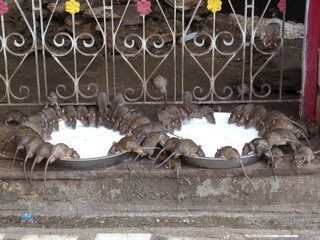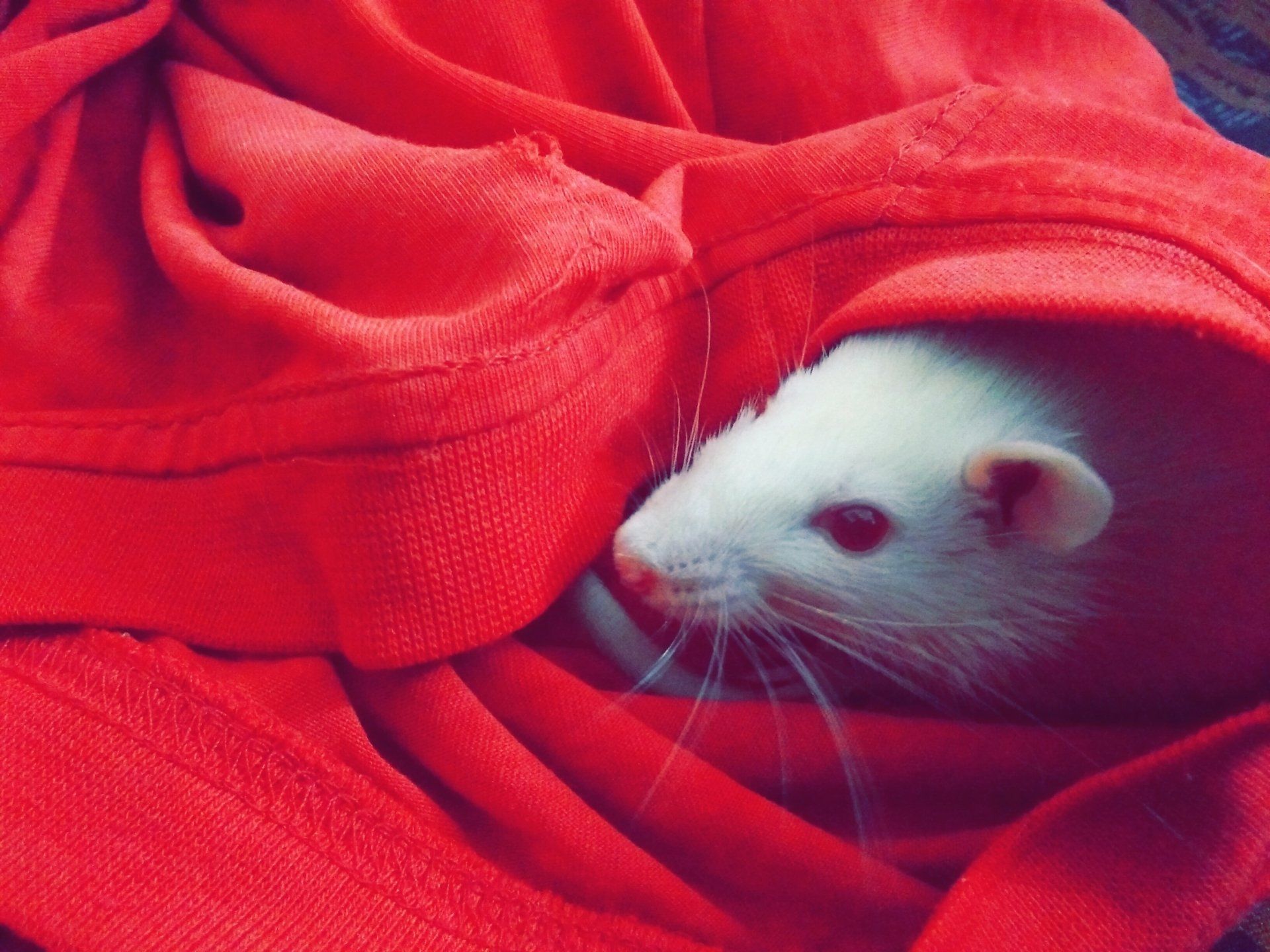Do Rats Experience Baldness? – Why Rats Lose Hair
This post contains affiliate links and I will be compensated if you make a purchase after clicking on my links.
Do Rats Experience Baldness? – Why Rats Lose Hair
The more you dive into the world of rat, the odder and more interesting the information you find. Are rats like humans in that they can undergo the experience of going bald with age? Or are there other culprits at play?
While the coat of a rat does grow thinner with age, there are a multitude of other reasons for hair loss in rats. Grooming, stress, diet, allergies, parasites, or a combination of these can be why your pet rat is losing his coat.
Thankfully, there are cures for all the reasons above. We dove deep and came up with not only the reasons for hair loss in rats, but ways to solve it.
Reasons For Balding In Rats
There are six main reasons a rat starts to lose their coat:
- stress
- barbering
- diet
- parasites
- allergies
- old age
We’ll cover all of these in detail, and provide solutions for each of these scenarios, with the exception of old age.
1. Stress
Rats are prey animals and are thus prone to stress more than a predator would be. Stress is a bit of a catch-all when it comes to determining what is causing hair loss, as stress leads to some of the below behaviors, and vice versa.
Some common causes of stress in rats is the death of a cagemate, a change in environment, bullying from a cagemate, and perceived danger to it and its mischief.
Signs of Stress: A stressed rat may stop eating, start to self-barber, or show other signs. If they are acting scared a lot, and can’t seem to calm down, they are likely stressed. See Pet Rat Body Language for more on reading the body language of your rats.
How To Fix It: The easiest way to cure stress in a rat is find what is causing them stress and eliminate/change it. Sometimes these things take time, such as stress from the death of a friend or a move.
However, sometimes they are easy, such as not allowing your cat or dog to enter the room where your rat cage is if that is stressing your rat out, or giving your rats more to interact with in their cage if one rat is bullying another and causing stress.
Giving the dominant rat more to do and interact with in the cage can fix their boredom and allow the stressed rat a reprieve from the bullying.
2. Barbering
Barbering, or “over grooming,” is when another rat grooms a rat overly aggressively and leaves bald patches behind as a result. This is usually the result of a dominant rat grooming the more submissive rat, so it will likely show on the more timid rats in the mischief.
A rat can also “self-barber”, where they groom themselves so aggressively they leave bald patches. Both barbering and self-barbering are usually the results of boredom or stress.
Signs of Barbering: Barbering is pretty easy to spot, as it leaves little bald patches on your rat. But where the bald spots are can tell you if the rat is self-barbering, or if another rat in the cage is the culprit.
If your rat is self-barbering, it’s going to be in places they can reach with their teeth, mainly the stomach and legs.
If another rat in the mischief is the one doing the barbering, these spots usually show up on the neck, shoulders, and head. We have had a barber, and we noticed it was mostly done right behind the ears.
How To Fix It: To get your rats to stop barbering, you first have to determine why they’re barbering.
If the barbering is due to stress or boredom, dealing with the stress or giving your rats more to do will likely cure it. When one of our rats started barbering one of the other rats, a simple change around of the cage did the trick.
Getting them out of the cage in a free roam area for them to explore and use their minds can also help a lot in regard to curing boredom.
If the barbering is due to a skin infection or parasites, see your veterinarian as soon as possible to get a treatment plan.
3. Diet
Not being on a proper diet can cause hair loss in rats as well. In particular, excess protein or malnutrition can cause itching and scabs, leading to hair loss.
Signs of a poor diet: If your rat is malnourished, you will likely be able to tell. See The Body for help determining what a healthy weight looks like on a rat.
Malnutrition can also cause very dry skin in rats, so they will be scratching at themselves a lot. Excess protein will also cause your rat to scratch, creating scabs.
How To Fix It: Rats should only have 12-20% protein in their diet, and also need their fat content watched, so if you are feeding them in excess of this (and take into account the treats and snacks they get), you may need to switch their food or cut back on the protein or fat heavy snacks.
The easiest way to regulate the nutrition in your rats’ diets is to feed a block food like Oxbow, Mazuri, or Science Selective, and give rat safe fruits and veggies as snacks.
If your rat is getting the correct amount of protein and nutrition, and still showing signs of excess scratching leading to hair loss, take them to your vet to determine if the cause is parasites or something else.
4. Parasites
You wouldn’t think rats, a caged animal, would be prone to mites and lice. But they are! These annoying critters feed off the rats, laying eggs and burrowing under the skin (mites).
While they aren’t parasites (or worms for that matter), ringworm is another fungal skin condition that can cause hair loss in rats.
Signs of Parasites: While lice can be spotted on a rat, mites are near impossible to spot with the naked eye. However, they both cause excess scratching from the rat.
Mites and lice cause scabbing, so if you notice scabs start to show up on your rat’s body, along with scratching like crazy, you probably have a case of parasites on your hand.
Ringworm will show as hair loss in a circular pattern.
How To Fix It: See a vet. The best method to ensure you are treating your rats with the correct medication for the parasite or infection they have is to bring them to your local vet for a diagnosis and prescription.
If your rat has ringworm, an anti-fungal wash should be able to clear it, if not, see a veterinarian for further options.
5. Allergies
Just like other animals, rats can have allergies, and these can cause hair loss through excess scratching. Bedding and food allergies are the two most common forms of allergies in rats.
Signs of Allergies: Rats who have bedding or food allergies will scratch at themselves excessively, causing hair loss and possible open wounds.
How to Fix It: As with the parasites, your best bet is to bring your rat in to your vet to try and determine what your rat is allergic to. If it is the bedding, it can be as simple as changing out the bedding you are using.
If it’s a food allergy, you may have to cut your rat’s diet down to the basics, allowing for a detox period, and slowly adding foods back in. This should be down under a vet’s guidance and suggestions.
6. Old Age
Just like most animals, rats do lose condition and density of their coat with age. If you have an elderly rat who doesn’t fit into any of the categories above, chances are they are just getting older.
As rats get older, it gets harder to groom themselves, and they slow down. After a bit of neglect, the coat will start to show the signs of age.
Signs of Old Age (in regards to the coat): The coat will start to thin out, and appear more patchy, especially in rex varieties of rats. Hair should not be coming out in clumps, but just appear like they are losing hair density in general.
If you notice an odd amount or sudden hair loss on an older rat, your best option is to take them to a vet to determine what is causing it.
How To Fix It: You don’t! You love your elder balding rat and give them the best care you can for the remainder of their life.
Final Thoughts
Watching a pet rat lose hair without knowing why can be scary, but it doesn’t need to be! Equipped with the right knowledge, we can look at the signs and determine what it is causing our rats to lose their hair, and take action from there!
Have you ever experienced hair loss with your rats? Share your experiences and how you dealt with it below!
